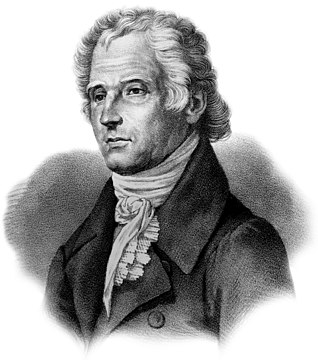| Edit | Map | Home | New Post | New Gallery |
Support
|
 | |
Dmytro Stepanovych Bortnianski ( Ukrainian: ?????? ?????????? ????????????, Russian: ??????? ?????????? ???????????; Dmytro Stepanovych Bortnianski , born October 28 , 175 1 in G?uchów , Russian Empire , died October 10 , 1825 in Saint Petersburg , Russian Empire ) - composer, singer and conductor of origin Lemko, whose national and cultural affiliation has been disputed by Russian and Ukrainian scientists for many years The Bortnianski family comes from the Lemko region , from the village of Bartne (Lem. Bortne ). The composer's father, Stefan Szkurat, who settled in Ukraine in G?uchów, changed his name to the more noble sounding Bortnianski (from the name of his home village) [3] . The composer's mother came from the Russian noble Tolsty family. Bortnianski received the basics of musical education in G?uchów (then the capital of the Hetmanate [4] ), in a school of Orthodox singers which had been operating here since 1740. From 1759 he sang in the tsar's choir in St. Petersburg . Here he studied singing and music theory, as well as composition with Baldassar Galuppi . After Galuppi left Saint Petersburg, Bortnianski continued his studies with him in Venice . Between 1769 and 1779 he stayed in Venice, Bologna and Rome . During his stay in Italy , he wrote a number of religious compositions to Latin texts and staged three operas ( Creonte , Quinto Fabio, Alcide ), which met with great appreciation among contemporaries. After returning to Russia , he became the conductor of the tsar's choir, and from 1796, the conductor of vocal music and the director of this ensemble. Acting in this position, he wrote many religious compositions and contributed to a significant increase in the level of the choir ensemble. In addition, Bortnianski was associated with the court music ensemble of Tsarevich Paul in Gatchina and Pavlovsk . Here he directed the musical setting of all court ceremonies, adding splendor to them with his own compositions written for the use of the court (operas, chamber music). Bortnianski is the most outstanding composer of the Russian cultural circle of the 18th century. His operatic style is based on the achievements of the 18th-century opera. This is evidenced by the extensive arias with extensive parts of accompaniment recitative and flowing melodics of the bel canto type . Native traditions are manifested in the extensive use of choirs . Later operas, staged at the court of Tsarevich Paul and performed by amateurs (" Falcon ", "Senior's Feast", "Son-competitor or modern Stratonika "), show the influence of French comic opera . Bortnianski's instrumental work has clear ties to classical music (e.g. Mozart ). This is visible both in the form and in the clear texture. The melody of the slow parts of his sonatas and other instrumental pieces bears the characteristics of the bel canto style and is melancholy and sentimental in nature.
Bortnianski's religious work represents the pinnacle of Russian church music in the 18th century. The richest area of ??his work are polyphonic a cappella religious concerts . These are extensive compositions composed of three or four parts, contrasting in terms of tempo, texture and type of melody. The composer juxtaposes solo parts , duets or trios with choral parts, fast parts with slow parts. The sound-monumental finales sometimes take the form of a fugue. In the melodics of the concertos, the composer uses phrases taken from Old Church characteristic chants, combining them with phrases typical of Ukrainian and Russian songs and the Italian operatic cantilena . The sound of the choirs testifies to Bortnianski's perfect mastery of the technique of choral church singing. Particularly interesting in this respect are the concertos for two choirs. Bortnianski's religious concerts enjoyed popularity in Russia throughout the 19th century. Despite the abandonment of their use in liturgical practice, they are performed at concerts to this day. The mastery of the polyphonic technique used in them was admired by Hector Berlioz. Today, Bortnianski's work is experiencing a renaissance in the repertoire of Russian and Ukrainian musical institutions. |
Автор: Sonya Версія: 1 Мова: Англійська Переглядів: 0
|
Коротке посилання: https://www.sponsorschoose.org/a199
Коротке посилання на цю версію: https://www.sponsorschoose.org/n225
Автор - Sonya дата: 2023-06-02 08:47:26
Остання зміна - Sonya дата: 2023-06-03 16:36:26
|